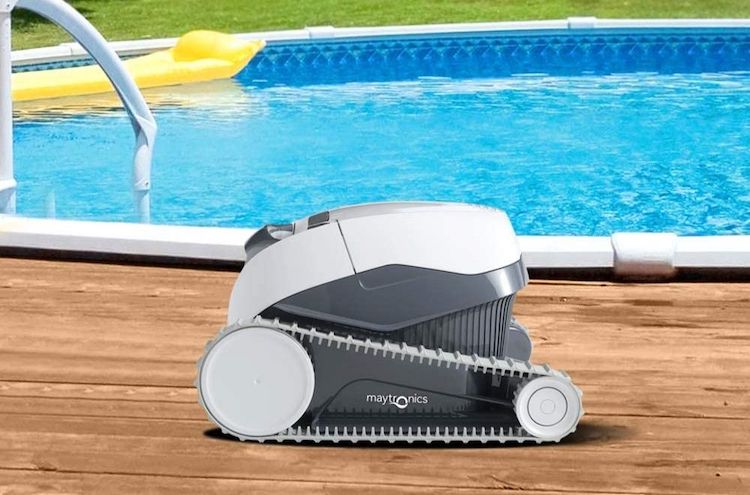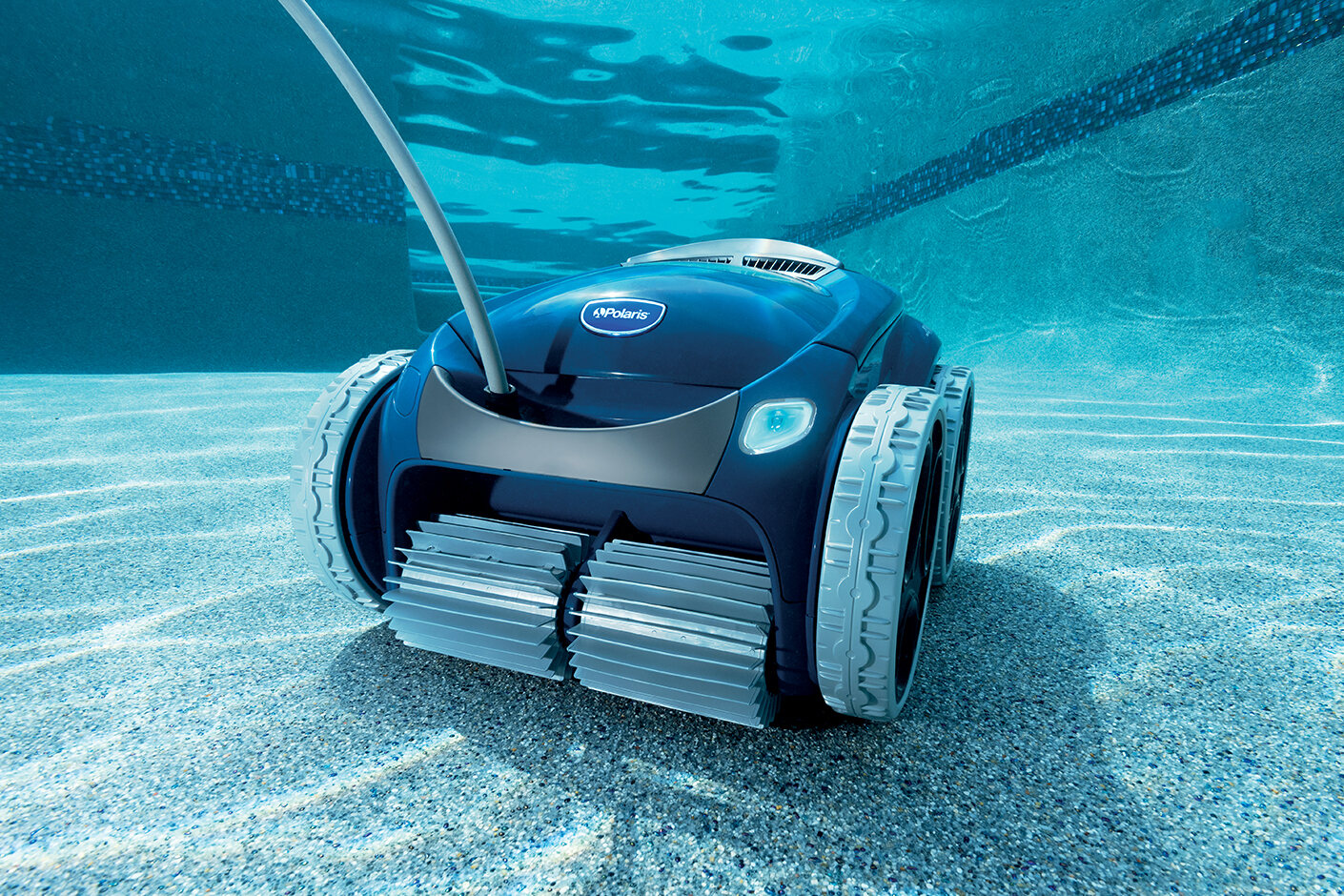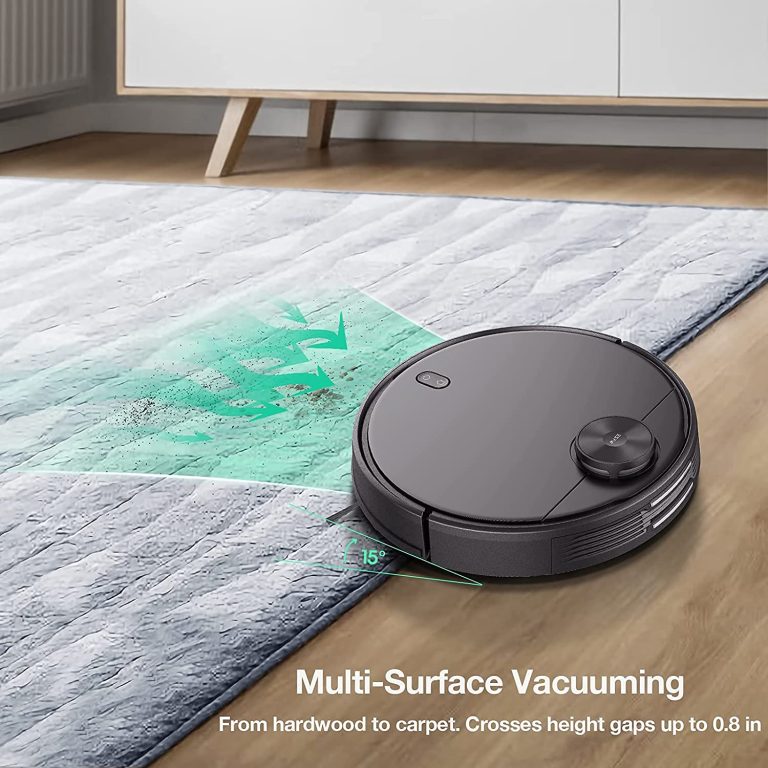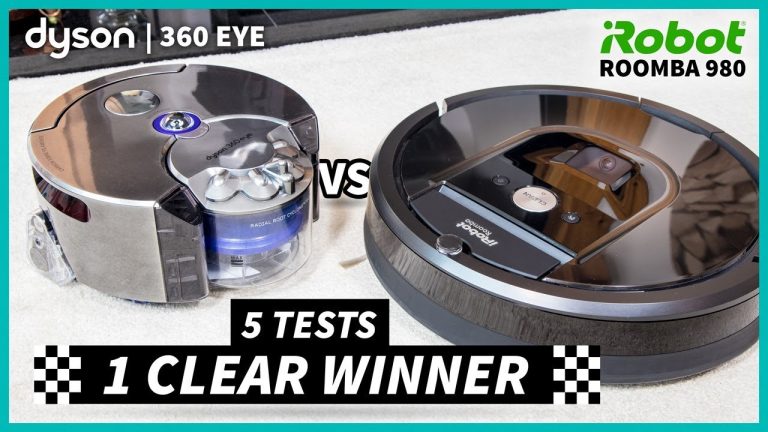Pool Vacuum Vs Robot
Pool vacuums and pool robots differ primarily in automation, with robots offering hands-free cleaning. Pool vacuums require manual operation, whereas pool robots provide independent cleaning.
Maintaining a sparkling clean swimming pool requires the right equipment. Pool vacuums and robotic pool cleaners stand out as wise options for homeowners, each with distinct advantages. Pool vacuums typically attach to your pool’s existing filtration system and need to be guided manually.
They are often more affordable but demand more effort on your part. On the other hand, robotic pool cleaners are autonomous units that traverse your pool’s surfaces independently. They are more expensive upfront but save time and often come with advanced features like scheduled cleaning. By choosing between these options, you can balance your budget with the convenience and level of cleanliness you desire for your pool.

Credit: roboticsandautomationnews.com
Introduction To Pool Cleaning Technologies
Pool cleaning technologies have evolved significantly. Traditional pool vacuums and robotic pool cleaners are popular choices. Each has unique features to consider.
Pool vacuum cleaners require manual handling. You must push or pull them through the water. They connect to your pool’s filtration system. This demands regular physical effort and time.
On the other hand, robotic pool cleaners offer advanced convenience. They operate independently with built-in filtration systems. High-tech sensors help them navigate your pool. No manual labor is needed.
| Aspect | Pool Vacuum Cleaner | Robotic Pool Cleaner |
|---|---|---|
| Effort | High manual effort | Low to none |
| Convenience | Less convenient | Highly convenient |
| Operation | Dependent on pool’s system | Independent, automated |

Credit: www.polarispool.com
Pool Vacuum Cleaners: A Detailed Analysis
Pool vacuum cleaners keep swimming pools clean. These devices remove dirt, debris and algae. They come in various types and sizes. Each has a unique way of cleaning. Suction-side, pressure-side, and robotic are common kinds. Each offers diverse functionalities based on the pool’s needs.
| Type | Function | Pros | Cons |
|---|---|---|---|
| Suction-side | Connects to pool’s system | Cost-effective, easy to install | High maintenance |
| Pressure-side | Uses pressure to clean | Good for large debris | May need booster pump |
| Robotic | Independent, electric cleaners | Energy efficient, thorough | Higher initial cost |
Choosing a pool vacuum requires consideration. Look at pool size, type, and debris amount. Energy efficiency and cost play roles. A good fit is crucial for superb pool health. Maintenance preferences also dictate the choice.
Robotic Pool Cleaners: Understanding The Future Of Pool Maintenance
Understanding robotic pool cleaners starts with the mechanics. They work autonomously, with built-in sensors and navigation systems. This helps them to clean pools efficiently without human help.
- Robotic cleaners are energy-efficient and cost-effective.
- They require less effort, saving time on pool maintenance.
- Advanced scrubbing and filtering lead to cleaner water.
Despite these perks, challenges exist. Some models may be costly upfront. They can also be heavy and complex to repair for non-tech-savvy individuals.
| Feature | Description |
|---|---|
| Swivel Cable | Prevents tangling for seamless operation. |
| Programmable Timer | Enables automated cleaning cycles. |
| High-Quality Brushes | Removes debris and algae effectively. |
| Efficient Filtration | Captures and retains dirt and debris. |
:max_bytes(150000):strip_icc()/Dolphin-Nautilus-CC-Plus-Robotic-Pool-Cleaner-1-9e519731265c4f41b027311a5485cb71-e0c9f9def7794c6b87e25e116828be1c.jpg)
Credit: www.thespruce.com
Head-to-head Comparison: Pool Vacuum Vs. Robot
Pool vacuums and robots differ greatly in their cleaning performance. Traditional pool vacuums rely on manual operation, which can be less effective than robotic cleaners. Robots use advanced technology to scan and clean pools with high efficiency.
Robots offer ease of use as they operate automatically. Users simply set up the cleaning schedule. Pool vacuums, on the other hand, require physical effort and time.
| Maintenance | Durability |
|---|---|
| Manual vacuums need regular upkeep. | They are typically more robust. |
| Robots may need professional service. | But they do have sensitive electronics. |
Cost analysis shows that pool vacuums have lower initial prices. Long-term, robots might save more money due to lower energy usage and time savings. Consider both upfront and ongoing expenses before making a choice.
Case Studies And User Experiences
Many pool owners report that robotic pool vacuums save them time. They often praise the “set and forget” convenience. One owner mentioned her robot vacuum covers the entire pool, never missing a spot.
Professional pool services reflect on efficiency. They indicate that manual pool vacuums require more physical effort. In contrast, robotic cleaners handle tough debris with ease, improving service quality.
Technological strides in pool cleaning are significant. Newer models of robot vacuums boast advanced sensors and programming. This technology helps them adapt to different pool shapes and sizes.
Choosing The Right Pool Cleaning Solution
Pool vacuums and robot cleaners offer different benefits for pool maintenance. Manual pool vacuums are budget-friendly and simple to use, but they require more physical effort. Robot pool cleaners, on the other hand, provide ease and efficiency, automating the cleaning process.
As technology advances, we can expect smarter and more energy-efficient robotic cleaners to emerge. They will likely be equipped with advanced sensors and even remote-controlled capabilities. These innovations could set new standards for pool cleanliness and maintenance ease.
For pool owners seeking convenience and advanced features, investing in a robotic pool cleaner is a wise choice. Those with smaller pools or tighter budgets may opt for the traditional pool vacuum. It’s crucial to consider pool size, type, and personal preferences before making a purchase.
Frequently Asked Questions For Pool Vacuum Vs Robot
Which Is Better Robotic Pool Cleaner Or Suction?
Robotic pool cleaners offer advanced features and independent cleaning, whereas suction cleaners are cost-effective and easy to maintain. The better option depends on your budget and desired level of automation.
Are Robotic Pool Cleaners Better?
Robotic pool cleaners offer efficient, automatic cleaning and can save time. They’re typically more effective than manual options, handling debris of various sizes with ease.
What Is The Difference Between A Pool Vacuum And A Robot Vacuum?
A pool vacuum is manually operated by a user, typically requiring a hose and connection to a pool’s filtration system. Conversely, a robot vacuum operates automatically, using built-in motors and filters to clean independently.
Do I Need To Vacuum Pool If I Have A Robot?
Yes, you may still need to vacuum your pool manually for thorough cleaning, as robotic cleaners can miss spots, especially in corners or on stairs.
Conclusion
As we wrap up the debate between pool vacuums and robots, the choice hinges on individual needs and budgets. Pool vacuums offer affordability and simplicity, while robotic cleaners bring automation and advanced features. Both aim for a pristine pool, yet your lifestyle dictates the best fit.



